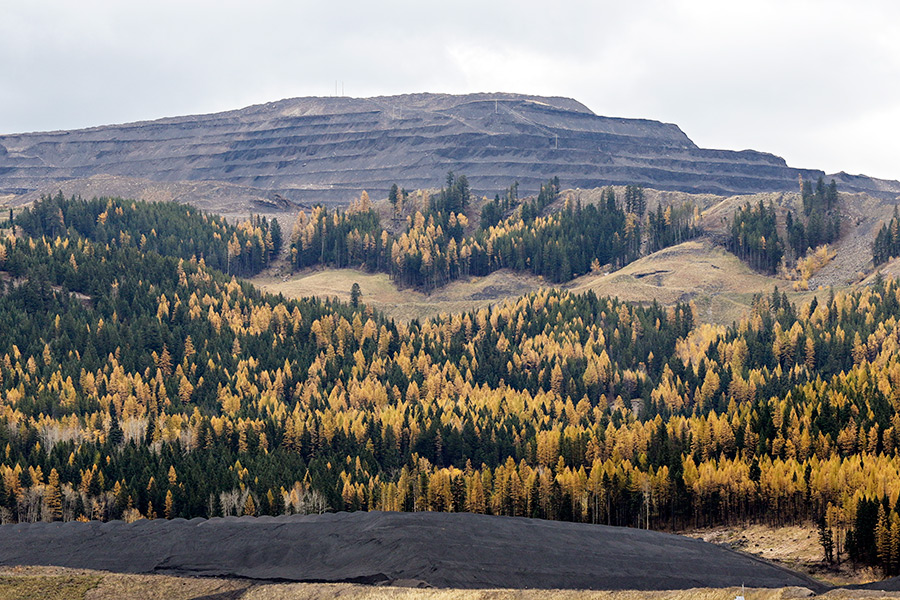An appellate court panel has affirmed a federal judge’s ruling that the same Canadian mining company responsible for contaminating downstream waters in Northwest Montana must pay the Confederated Tribes of the Colville Reservation in Washington more than $8.25 million to offset the costs of an environmental cleanup related to upstream mining operations.
In a unanimous decision, the 9th Circuit Court of Appeals agreed with a lower court’s ruling that the company, Teck Cominco Metals, is responsible for sending toxic mining waste down the Columbia River for nearly a century.
Members of the Confederated Tribes of the Colville Reservation — which is composed of 12 indigenous groups and located across the border in Washington State — first brought the lawsuit against Teck in 2004, alleging that hazardous substances from its Trail, British Columbia smelter were disposed of in the Columbia River, which the Tribes’ reservation borders.
In 2016, U.S. District Court Judge Lonny Suko awarded the Colville Tribes $8.25 million in costs, plus interest. Of the money awarded, approximately $3.4 million stems from the group’s investigative costs into the status of the water and expert analysis. About $4.85 million stems from its attorneys’ fees and litigation costs.
The ruling holds Teck fiscally responsible for sending tons upon tons of a toxic mining material called “slag” downstream and into the Tribes’ reservation waters.
Teck appealed the ruling, arguing that it could not be held legally liable for the transboundary pollution because its mining operations are located in Canada.
“This appeal is the latest chapter in a multi-decade dispute centered on Teck Metals’ liability for dumping several million tons of industrial waste into the Columbia River,” according to the 9th Circuit’s opinion.
“It is inconceivable that Teck did not know that its waste was aimed at the State of Washington when Teck deposited it into the powerful Columbia River just miles upstream of the border,” the opinion continues. “As early as the 1930s, Teck knew that its slag had been found on the beaches of the Columbia River south of the United States border. By the 1980s, Teck’s internal documents recognized that its waste was having negative effects on Washington’s aquatic ecosystem. And by the early 1990s, Teck’s management acknowledged that the company was ‘in effect dumping waste into another country,’ using the Upper Columbia River as a ‘free’ and ‘convenient disposal facility.’”
In Northwest Montana, research shows an influx of mining contaminants from Teck facilities leaching downstream into Lake Koocanusa, which straddles the international border. The contamination has prompted outcry from U.S. representatives of the International Joint Commission, which is tasked with resolving transboundary water disputes under the 1909 Boundary Waters Treaty.
The commissioners recently released a letter to the U.S. State Department criticizing Canada’s three IJC representatives for their refusal to endorse a new report showing harmful effects to aquatic life and human health as a result of pollution stemming from coal mines owned and operated by Teck.
Specifically, the U.S. commissioners are concerned about the long-term impacts of a mining contaminant called selenium, which leaches out of the Elk River Valley in British Columbia, where the mountaintop coal mines are located.
Scientific research shows the contaminants are poisoning a prized aquatic ecosystem, while progress to address the alarming levels of hazardous mining waste has been slow, both on the part of Teck and the Canadian government.
According to Chris Stannell, Teck’s senior communications specialist, the company is conducting water-quality monitoring at 100 stations in the Elk Valley.
But last summer, the Vancouver-based mining giant announced plans to shut down its active water-treatment facility on a tributary of the Elk River called Line Creek. The experimental $120 million water-treatment facility was designed to stem the flow of selenium, but it was determined to be releasing an even more biologically toxic form of the contaminant.
Currently, selenium levels as high as 2.7 micrograms per liter are being measured at the U.S.-Canadian border, while the maximum allowable limit under guidelines set by the U.S. Environmental Protection Agency is 1.5 micrograms per liter.
The IJC letter isn’t the first time that Teck has come under fire for violating water-quality standards, and the company has repeatedly been fined for exceeding regulations.
In 2016, the British Columbia Auditor General released a scathing two-year audit chastising provincial mine regulators for “a decade of neglect in compliance and enforcement,” highlighting the coal mines above Lake Koocanusa as particularly egregious examples.
“We found almost every one of our expectations for a robust compliance and enforcement program within the (Ministry of Energy and Mines) and the (Ministry of Environment) were not met,” B.C. Auditor General Carol Bellringer wrote in the report.
